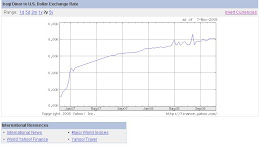Joint venture by Dana Gas and Crescent Petroleum to generate investments of over 40 billion US dollars
The Kurdistan Regional Government (KRG) announced today that a 461 million square foot site for the Kurdistan Gas City has been designated for development by Gas Cities LLC, a joint venture between Dana Gas PJSC, the Middle East's first and largest regional private-sector natural gas company, and its partner Crescent Petroleum, following extensive surveys that have been completed on potential sites within the Kurdistan Region of Iraq.
The groundbreaking ceremony of the Kurdistan Gas City will take place on 21 September in the presence of KRG Prime Minister Nechirvan Barzani, and several ministers, dignitaries and heads of prospective local and international industry leaders.
Kurdistan Gas City is a major new sustainable and synergistic gas-utilisation industrial complex to be built over an area of 461 million square feet, designed to promote private sector investment in a variety of gas-related industries to further benefit the country’s citizens through mass training, job creation in the many tens of thousands, and the promotion of general economic activity.
Kurdistan Gas City will include industrial, residential and commercial components in an integrated city, with an expected initial investment in the basic infrastructure estimated at 3 billion US dollars, preparing the land for possession by prospective residents. This initial investment will in turn facilitate further foreign direct investment exceeding 40 billion dollars (147 billion UAE dirhams) during the operations phase. The Gas City is being structured to hold over 20 varieties of world scale petrochemical and heavy manufacturing plants, and hundreds of small and medium-sized enterprises (SMEs), served by state-of-the art civic facilities.
Prime Minister Barzani: Gas City to create opportunities
Prime Minister Barzani said, “Dana Gas and Crescent Petroleum have made a significant contribution to the Iraqi economy through their work in the Kurdistan Region of Iraq thus far, and the new Kurdistan Gas City will be an extension of the considerable and commendable achievements to date. We highly appreciate their dedication towards our Region and welcome their efforts to support the Iraqi people and the Iraqi economy. Through their professionalism and genuine concern for the community, we are making significant progress in spurring on economic growth and creating opportunities for our people.”
Mr Hamid Jafar, Executive Chairman of Dana Gas, explained the ramifications of this achievement by saying, “The Kurdistan Gas City is an enormous step forward in Dana Gas’ strategy across the Middle East, North Africa and South Asia (MENASA) Region. At this time, we have the KRG and Prime Minister Barzani to thank for welcoming Crescent Petroleum and Dana Gas into the Kurdistan Region of Iraq, as we work towards strengthening the Iraqi economy and bettering the livelihoods of the Iraqi people.”
Kurdistan Gas City is the first in a series of Gas Cities that are being developed across the MENASA region by Gas Cities LLC, a joint venture company that has been established by and between Dana Gas and Crescent Petroleum. Kurdistan Gas City is projected to generate direct and indirect job opportunities for nearly 200,000 Iraqi citizens in infrastructure, industrial projects, support services and other business activities.
Mr Badr Jafar, Chairman of Gas Cities LLC, and Executive Director at Crescent Petroleum, commented on the occasion by saying, “The Kurdistan Gas City is the first in a series of similar gas cities planned for the entire region. Gas Cities LLC, as a new venture dedicated to the introduction and development of this unique concept, are formidable public-private sector partnerships that will generate massive regional and foreign direct investment and unrivalled local opportunities in the communities into which we plan to introduce the Gas City concept.”
Natural gas pipeline and LPG plants near completion
Meanwhile, pursuant to the service agreements signed in April 2007 with the Kurdistan Regional Government, construction is more than 80 percent complete on 180 km of natural gas pipeline and two LPG plants, carried out jointly by Dana Gas and Crescent Petroleum in the Kurdistan Region of Iraq to supply, process and transport natural gas to fuel urgently needed local electricity generation. The project is employing Iraqi contractors, professionals, skilled technicians and labour in phases of construction stages to maximise local content and economic benefit. The entire project is on track for first gas supply of 150 million cubic feet per day in the coming weeks, rising to 300 million cubic feet by early 2009.
The gas supplied to the two new power plants under construction in Erbil and Suleimaniah, will generate 1,250 Mega Watts of electricity, for the benefit of over four million Iraqi citizens in the Kurdistan Region and the rest of Iraq. The project involves a total investment of 650 million US dollars - the largest single private sector investment in Iraq for decades.
As a result of this investment not only will urgently needed gas be supplied to the power plants cost-effectively but it will also result in savings to the Iraqi government’s budget of over 2 billion dollars annually in fuel costs. The project implementation will also provide work opportunities for over 2,000 Iraqi nationals of all ethnic groups, and provide comprehensive training in oil and gas operations for Iraq’s citizens.






